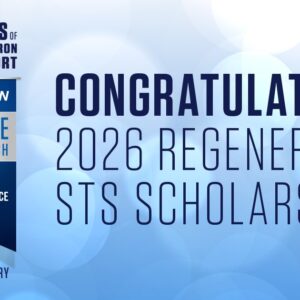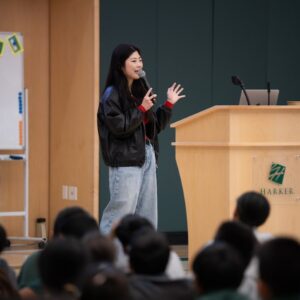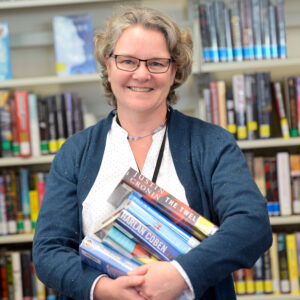Lauri Vaughan, upper school librarian and vice-president of the Bay Area Independent School Librarians, spoke in Washington, D.C., at the 27th annual Computer in Libraries conference, the most comprehensive conference on library technology in the country. Vaughan, who is in her sixth year at Harker, presented a talk titled “The eBook Market for K-12 Schools.”
EBook use at Harker is quickly growing. “When I arrived at Harker we owned 10 eBooks,” said Vaughan. “Now we own hundreds of eBooks and pay annual subscription fees for access to thousands more.” Most eBooks purchased or subscribed to by the Harker library are used for research projects of all sizes. The lower school recently purchased a set of eBooks it will likely use more heavily in classroom instruction.
The eBooks used at Harker are not necessarily the same kind one might find people reading on their beach vacations. “When most folks think of eBooks, they think of a book they buy for their reader – their Kindle or Nook or whatnot,” said Vaughan. “When I think of eBooks, I think about books that all my students can access via the Internet at the same time for research – it’s a very different market.”
Because Harker’s eBooks are accessible any time for any computer with an Internet connection, students have quickly taken to them. “We (my fellow librarians and I) are always amazed at how readily Harker students navigate around different eBook environments,” said Vaughan.
Though there are many benefits to eBooks, they also come with their own set of drawbacks. Many students believe that if they are reading information on a computer monitor it must be relatively new. However, many eBooks are simply digitized versions of material published decades ago. “We hope our students are thinking critically about information in all its forms as this is an especially important skill,” said Vaughan.
Another potential issue is rushed reading. “Studies have shown that a person is much more likely to read something slowly and thoroughly in print than they would the same thing on a computer screen,” said Vaughan. “While we like the ease of accessibility of information that eBooks provide, we also like to encourage thoughtful and deep reading of content.”
Though challenges exist, eBooks are clearly a valuable supplement to the Harker library system.








